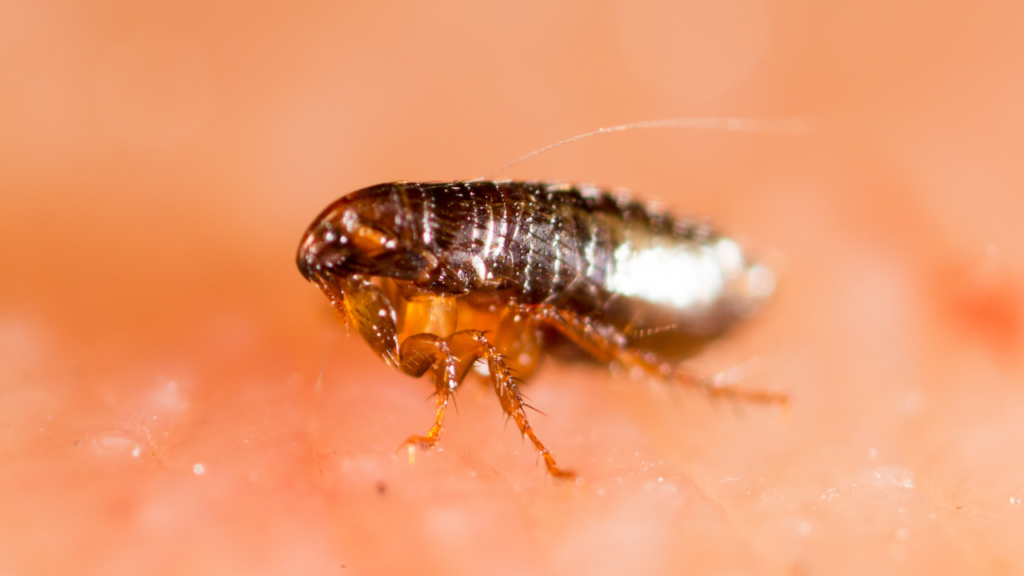Fleas are the archenemies of not just cats and dogs, but also of pet owners. As pet lovers, there is nothing worse than dealing with fleas and flea bites. To get rid of fleas, first of all, know your enemy… Here are eight important flea facts that you need to know.
1. Fleas are parasites that feed on blood
Fleas feed on the blood of their hosts about 10 to 15 times a day. They don’t just use blood to sustain themselves. They also use it to help develop their eggs. Fleas are so hungry for blood that they feed on it literally within five minutes of getting onto your pet.
Female fleas are the most insatiable of them because of how they also need blood to develop their eggs. They can consume blood more than 15 times their body weight.
2. Fleas multiply rapidly
Fleas can lay up to 40 eggs a day and about 2,000 in their entire lifetime. This is one of the flea facts that should worry you because it means fleas will be hard to deal with. Their sheer numbers alone make them resilient pests.
The flea life cycle has four stages – egg, larva, pupa, and adult. They go through these stages in 21 to 28 days. And they live for about two to three months. However, the most resilient among them can survive in your pet for more than a year. Imagine the amount of blood they will suck away from your pet for that length of time.
3. You can’t always use dog flea treatment on cats (and vice versa)
Fleas can spread fast among your pets. If you have both a cat and a dog, you may be thinking you are saving money by using the same flea treatment for them. But you may end up spending more because of the health risks.
Generally, you can’t use dog flea treatment on cats because cats are sensitive to common dog flea treatment ingredients like permethrin. Flea treatment toxicity is a thing, and it is serious enough to kill your pet if you are not careful.
However, there are flea treatments out there that you can use both on cats and dogs. But their labels should specifically say this. If it doesn’t, you shouldn’t take the risk.

4. Consult a vet for the facts about flea treatments
The differing flea treatments for cats and dogs are not the only complexities involved with flea treatments. There are other factors that can influence the effectiveness and safety of flea treatments, like your pet’s age, weight, and medical history. This is why consulting a veterinarian is the safest and most effective way to treat the fleas of your pet.
With that said, over-the-counter medications are still very effective. You should just properly read their labels. For instance, there are flea treatments out there that specifically say that they are safe for kittens and puppies.
5. Watch out for flea treatment side effects
Over-the-counter and prescription medications are both effective and safe. They are regulated by the government. As long as you are buying from pharmacies and other legitimate stores, you should be fine. However, even approved medications can have negative side effects. For instance, isoxazoline flea products have the potential to trigger neurologic adverse events in cats and dogs, and the FDA recognizes this threat.
Your own negligence can also lead to flea treatment side effects, like diarrhea, difficulty in breathing, skin irritation, and vomiting.
Flea treatments can be complicated. If you don’t know what you are doing, you may be putting your pet at risk. Among all flea facts, this is the one that should convince you to consult a veterinarian instead of playing doctor yourself.
6. Fleas can thrive in homes, not just pets
When you think about fleas, the only ones you think about are the ones on your pet. But here’s the thing – they can also thrive in your home. They can be in carpets and rugs, furniture, and even your mattress. This makes you especially vulnerable to flea bites that cause itching, inflammation, and soreness.
There are fleas around your home because your pet goes around your home too. They leave fleas behind. When you are dealing with a flea infestation, it’s important to treat your entire home, not just your infested pet.
Luckily, cleaning a flea-infested home is fairly simple. Common commercial cleaning products like aerosol sprays and vacuum cleaners are usually enough to get rid of them.

7. You can have a flea infestation even if you don’t have pets
Yes, you can have fleas around your home because your pet wanders about and leaves them behind all over the place. But do you know that you can still have fleas around your home even if you don’t have pets?
Here are three ways to get fleas even if you don’t have pets:
- The previous tenant has a flea-infested pet that has left fleas behind
- There is a flea infestation outside your home, such as in your garden, and the fleas have made it inside your home
- Stray animals like raccoons and skunks have visited your home and left fleas behind
8. Fleas bite and spread diseases
Some home pests are more dangerous than others. For example, ants are generally just a nuisance while termites can be incredibly destructive. Fleas are somewhere in between. They are more than just a nuisance because they bite and spread diseases but they are not as structurally destructive to your home as other pests.
Though rarely, flea bites can lead to allergies, and severe allergic reactions are serious enough to be considered medical emergencies. Fleas are also considered disease and parasite vectors. The bubonic plague and tapeworms are some of their most notable health risks.
Arm yourself with these flea facts
Fleas are parasites that can be hard to eliminate. The best way to do it is through the help of a veterinarian because of the complexities associated with flea treatments. When treating a pet, make sure to treat your entire home because fleas can thrive not just in pets, but also in carpets and mattresses. You should definitely be concerned about fleas because they are not mere annoyances. They are actually health risks.
These flea facts will help you in your fight against these parasites. If you know your enemy, they are already half defeated.

